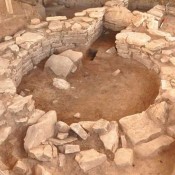Sir John Boardman, OBE FBA, the great archaeologist and art historian, who has been described as “Britain’s most distinguished historian of ancient Greek art”, has died at the age of 97, on May 23, 2024.
Sir John Boardman was born on August 20, 1927 in Ilford, England. He was educated at Chigwell School in Essex and Magdalene College Cambridge during and immediately after the War. Following his National Service, he carried out research in Greece and served as Assistant Director of the British School at Athens from 1952 to 1955. In that year he was appointed Assistant Keeper at the Ashmolean Museum. He became Reader in Classical Archaeology at Oxford in 1959 and in 1978 he was appointed Lincoln Professor of Classical Archaeology and Art.
He carried out archaeological excavations in Smyrna and Crete, at Emporio in Chios and Tocra in Libya.
John Boardman was a Fellow of the British Academy, from which he received the Kenyon Medal in 1995. He was awarded the Onassis Prize for the Humanities in 2009. He has been the recipient of numerous academic awards.
His interests were principally art-historical. Their thematic and geographical breadth was immense, ranging from vase-painting and engraved gems of all periods to Central Asian sculpture and ancient Chinese bronzes. His global perspective was outlined in The World of Ancient Art (2006). But it was his expertise in Archaic and Classical Greek art, and especially Attic pottery, which secured his fame. He received a knighthood in 1989. His sixty-year relationship with Thames and Hudson produced more than a dozen books, including seven volumes on Greek vase-painting and sculpture in the World of Arts series, which were translated into several languages. In all he wrote some 45 books, co-authored 17 more, and produced well over three hundred articles and book chapters.
Informed of the loss of Professor Sir John Boardman, Minister of Culture and Sports Lina Mendoni made the following statement:
“Sir John Boardman was an outstanding archaeologist and art historian, with a distinguished, enduring and significant contribution to Greek classical studies. In his long career, spanning more than seven decades, he fruitfully combined excavational survey with academic teaching at Oxford University, where he nurtured generations of archaeologists. His writings consist of dozens of monographs and hundreds of articles and contributions to edited volumes, many of which concern the study of Greek archaeology and history.
“The major milestones of his involvement with classical Greece were undoubtedly the excavations he carried out at Emporio in Chios and the three years he worked at the British Archaeological School in Athens. From his vast work, I will only mention his systematic contribution to Greek pottery and the study of Archaic and Classical ceramics. Above all, Sir John Boardman had an inquiring spirit. He did not cease to study and work almost to the end, and insisted, in words and deeds, on the promotion of the classical heritage and the dissemination of archaeological knowledge, in an accessible but profound manner, to ever-wider audiences. I had the good fortune to meet him many times on Chios and to listen to his insightful and lucid archaeological discourse.
“I extend my sincere condolences to his family, friends and students.”





